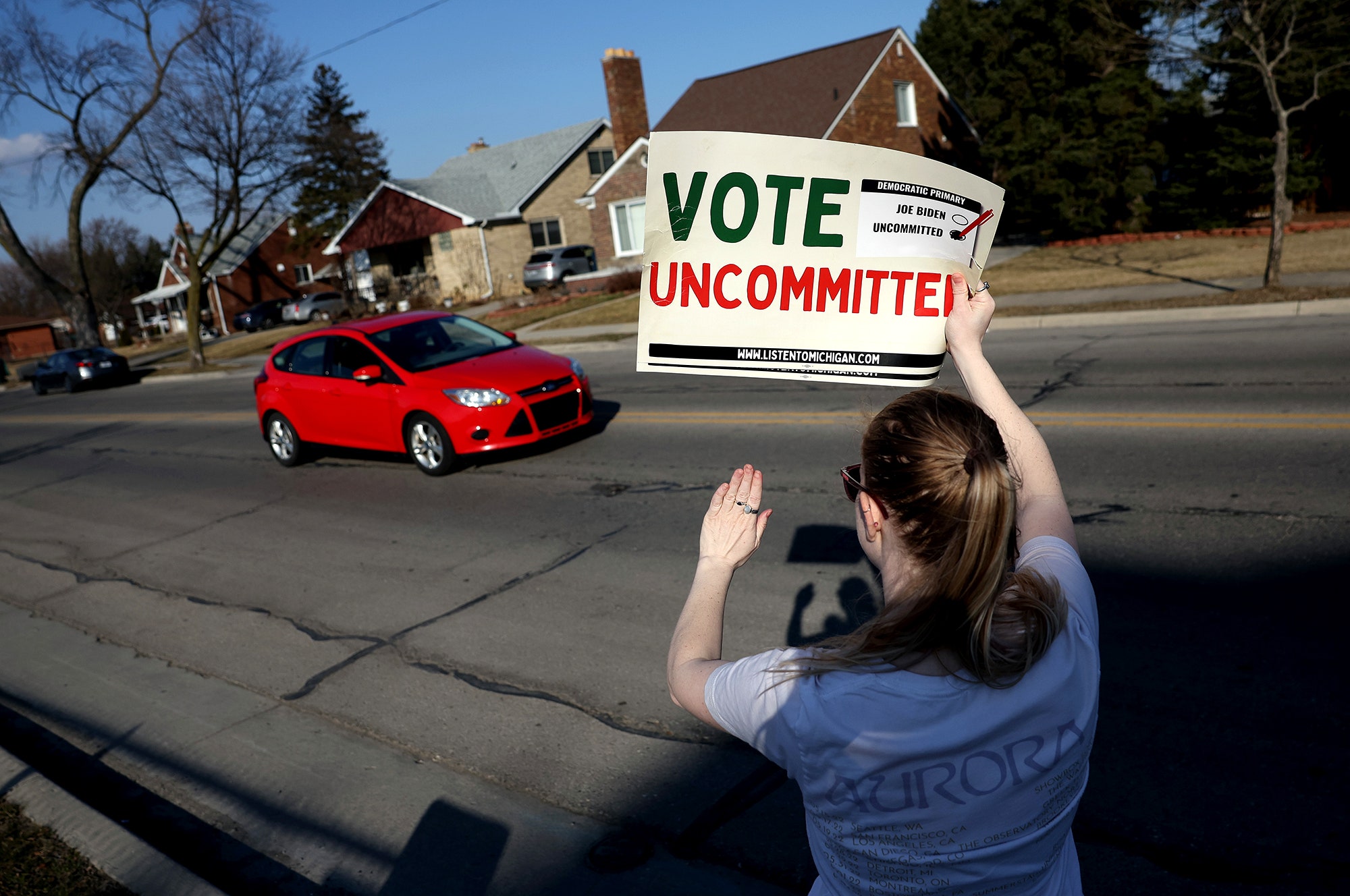In Michigan’s Democratic presidential primary, Joe Biden secured an electoral victory, but the substantial support for the “uncommitted” option revealed a deeper dissatisfaction among Democrats regarding the president’s unwavering backing of Israel amid its conflict in Gaza.
With over 101,000 votes, constituting 13.3% of the primary electorate, cast for “uncommitted,” voters utilized this avenue to express their discontent with Biden’s policies. Despite Biden’s win with approximately 81% of the vote, the significant turnout for “uncommitted” signals a mandate for change among Michigan Democrats.
The sheer volume of votes against the incumbent in a primary, especially when the initial goal was a mere 10,000, holds historical significance. Michigan, a crucial swing state, witnessed a narrow victory margin for Biden in 2020 and Trump in 2016.
This groundswell of support for “uncommitted” reflects a broader sentiment among voters, as explained by Abbas Alawieh, a spokesperson for Listen to Michigan, the organization spearheading the campaign. Alawieh emphasizes the need for President Biden to reassess his policies concerning Israel, warning of potential political consequences if he fails to do so.

Michigan’s Protest Vote May Alter Joe Biden’s Strategy (Credits: Semafor)
However, the “uncommitted” option has drawn criticism from Biden’s camp, with figures like Michigan Governor Gretchen Whitmer framing any vote not cast for Biden as supportive of a second Trump term.
Yet, voices within the “uncommitted” movement, like Nasser Beydoun, dismiss this argument, attributing responsibility for potential electoral outcomes solely to the Democratic establishment and Biden himself. Abdullah Hammoud, Mayor of Dearborn, echoes this sentiment, highlighting the community’s grievance over the loss of lives in Gaza and the inadequacy of arguments suggesting a second Trump term would be worse.
Recognizing the growing discontent, White House officials engaged with Arab American leaders in Michigan to address concerns and offer apologies. This outreach reflects a realization within the administration of the failure to address Palestinian issues adequately.
While US military support for Israel remains steadfast, Biden’s criticism of the assault in Gaza signals a nuanced approach, albeit one at odds with Israeli Prime Minister Benjamin Netanyahu’s stance. Despite Biden’s efforts towards a temporary ceasefire, uncertainty looms over its realization.
The “uncommitted” campaign in Michigan, largely grassroots in nature, targeted diverse demographics with minimal spending. Notably, Washtenaw and Wayne counties saw the highest “uncommitted” votes, reflecting both progressive and Arab American sentiments.
Similar movements are emerging in other states like Minnesota, indicating a broader dissatisfaction with Biden’s stance on Israel. Jewish Voice for Peace Action, a national anti-Zionist Jewish organization, voiced its disappointment with Biden’s policies, reflecting a broader sentiment within traditionally loyal Democratic demographics.
For Beydoun and others, the “uncommitted” vote serves as a message to future presidential candidates, emphasizing the importance of not taking minority communities for granted. While Biden secured victory in Michigan, the significant support for “uncommitted” underscores a demand for policy changes within the Democratic Party, particularly concerning Israel and Palestine.























